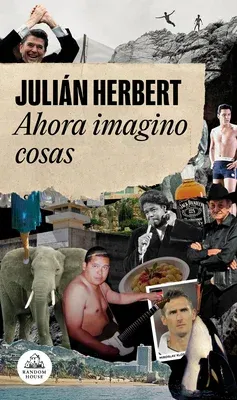**«¿Herbert escribe memorias? ¿Ensayos? ¿Novelas? Sus libros son
mash-ups de recuerdos, investigación y ornamentación ficcional,
marcados por una cálida falta de respeto por los géneros --como es la
vida». **--The New York Times
Regresa uno de los escritores mexicanos más talentosos y reconocidos
de la actualidad con un libro de crónicas transgresor.
Si, como dijo Alfonso Reyes, el ensayo es el centauro de los géneros, la
crónica es un mestizo más exótico o salvaje: el grifo de la literatura.
Este libro es una jaula sin barrotes donde merodean algunas de esas
criaturas: la marchita eternidad de Acapulco y la vocación de Mazatlán
como food court del alma; una temporada de rockstar en el desierto y
un recuerdo del Mundial de Alemania 2006 robado por el autor a un
examante de su novia; un hotel en Shanghái donde toca la banda de jazz
más antigua del mundo y la visita de la reina de Inglaterra al puerto de
La Paz, Baja California Sur; el brutal asesinato de una adolescente
chilena en la región del Maule y un retrato a mano alzada del Fiscal de
Hierro, persecutor de guerrilleros suicidas, homeópatas marxistas y
gavillas narcomatriarcales que protagonizó la lucha contra la
delincuencia organizada en los años setenta en Nuevo Laredo.
Las ocho narraciones de este libro realizan una de las suertes mayores
de la literatura: ir de lo íntimo a lo general, o viceversa. También nos
recuerdan que no hay promesas sin resaca.
ENGLISH DESCRIPTION
"Does Herbert write memoirs? Essays? Novels? His books, as life
itself, are mashups of memories, research, and fictional ornamentation,
marked by a cordial disrespect for genres." --The New York Times
One of the most talented and recognized Mexican writers of today
returns with a transgressive book of chronicles.
If, like Alfonso Reyes said, "The essay is the centaur of genres", then
the chronicle would be a more exotic or wild half-breed: the griffin of
literature. In that regard, this book is a cage without bars where some
of those creatures roam: from the withered eternity of Acapulco and the
calling of Mazatlán as a food court for the soul; to rockstar for a
season in the desert and a stolen souvenir of the 2006 World Cup in
Germany that the author took from an ex-lover of his girlfriend; from a
hotel in Shanghai where the oldest jazz band in the world plays and the
visit of the Queen of England to La Paz, Baja California Sur; to the
brutal murder of a Chilean teenager in the Maule Region and a freehand
portrait of El Fiscal de Hierro, a persecutor of suicide guerrilla
fighters, Marxist homeopaths and narco-matriarchal gangs, the man who
led the fight against organized crime in the seventies in Nuevo Laredo.
The eight narratives of this book produce a fortunate attempt in
literature: going from the intimate to the general and vice versa. They
also remind us that there are no promises without a hangover.

